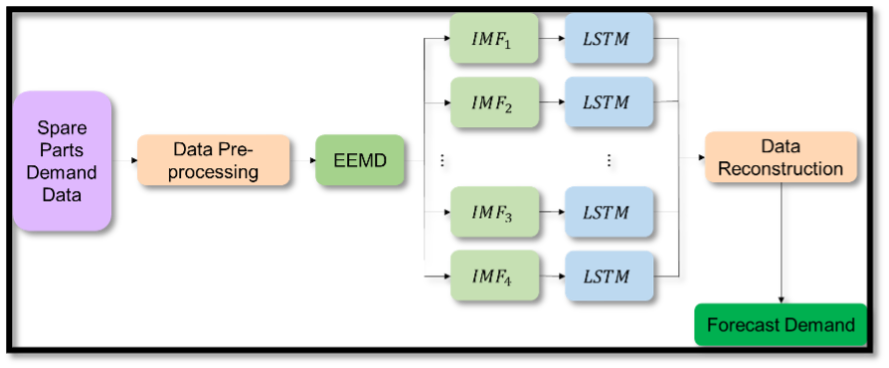

Time series

Demand forecasting using the appropriate models whether by statistical or deep learning methods, have the potential to help companies reduce downtime and maximise profits. However, forecasting demand for products such as spare parts that do not follow trends, seasonality or even rarely exhibit non-zero demand, may be extremely challenging to forecast. In this project, we will explore the possibility of deep learning, particularly, the Long Short-Term Memory (LSTM) with Ensemble Empirical Mode Decomposition (EEMD) in the forecasting of spare parts demand. We also observed that changing the LSTM unit with another variant called the Gated Recurrent Unit (GRU) performed similarly but changing the window size in which the model considers for prediction might have a bigger impact on the performance of the model.

The diagram above depicts the high level idea of how the spare parts demand data can be decomposed using EEMD to its intrinic mode functions (IMFs) before training the LSTM model.
Poster